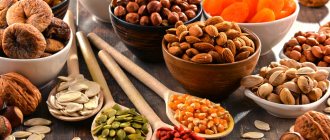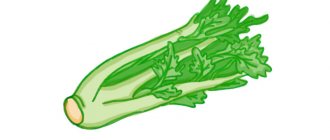Why does constipation occur?
The main reason why a nursing mother experiences constipation is psychological. If stitches were placed during natural childbirth, the woman is afraid to push. In addition, after a natural birth, the perineum may hurt. When delivery is performed by CS, there is a fear of the sutures in the uterus coming apart. There is severe pain in the lower abdomen, which also makes it difficult to strain properly.
Other causes of constipation after childbirth include:
- changes in hormonal levels, to which the intestines react acutely;
- prolonged pressure of the growing uterus on the digestive tract and subsequent sharp weakening;
- decreased tone of the muscle network of the perineum and peritoneum;
- poor nutrition;
- decreased amount of fluid in the body;
- postpartum depression.
The absence of bowel movements for several days after delivery is considered a physiological reaction of the body if an enema was performed. After 2-3 days, the stool should return to normal. If this does not happen, then we can talk about constipation. Symptoms of intestinal dysfunction also include: bloating, abdominal pain, bowel movements less than 3 times a week, and a feeling of inadequate bowel cleansing.
If constipation with blood occurs after childbirth, this indicates the appearance of hemorrhoids. The nodes are formed from dilated veins of the intestine and fall out when straining. This condition requires mandatory medical intervention.
What are the dangers of constipation while breastfeeding?
Constipation causes psychological and physical discomfort. It is more difficult for a woman to cope with household chores and walk with her baby due to constant pain in the rectum and lower abdomen.
Constipation in a young mother is always accompanied by unpleasant symptoms.
The woman is plagued by headaches, heaviness in the stomach, bloating, and flatulence. Therapists note: many women simultaneously complain of insomnia, overwork, nervousness, loss of appetite and tearfulness. The health of the mother affects the baby. He, like a mirror, screens the emotional state, becomes more capricious, inactive.
Long-term constipation leads to the accumulation of stool in the intestines. Against this background, the process of intoxication begins. Poisoning the body of a nursing mother with toxins also affects the baby.
How to prevent constipation during breastfeeding?
A new mother needs to be attentive to her well-being. Medicines that could previously be used to treat constipation are now banned. The active components of medications can pass into breast milk and act on the baby. Therefore, the main task for a woman in labor becomes to prevent a problem from arising, and not to look for ways to solve it. To avoid constipation after childbirth, you must adhere to an appropriate diet.
- Eat enough vegetables and fruits. It is advisable that they initially undergo heat treatment. Raw foods take longer to digest and complicate the digestive tract.
- Dried fruits increase intestinal motility. To normalize work, you need to have figs and dried apricots in your daily diet. For constipation, prunes act quickly on breastfeeding and dilute stool well. You should always know when to stop, since the mother’s nutrition has a similar effect on the child.
- Fermented milk products help improve intestinal microflora. Low-fat yogurt and cottage cheese, fermented baked milk are recommended for a nursing mother. It is better to avoid milk, as it can increase flatulence.
- Vegetable oils must be included in the diet unprocessed. If you fry a piece of meat in oil, it will not be beneficial for the intestines. It is recommended to drink olive and flaxseed oil on an empty stomach or add 1-2 tablespoons to salads.
- Freshly squeezed juices from vegetables and fruits normalize the functioning of the digestive tract. However, we must remember about possible allergies in the child. All products that prevent constipation during breastfeeding should be selected with caution and consumed in limited quantities.
- Whole grain cereals should be included in the daily menu. Rolled oats and millet have a good effect on the intestines.
- Lean meats are necessary for a nursing mother. However, the amount of protein should be limited, since large amounts can achieve the opposite result.
- Herbal decoctions (fennel, anise, cumin, dill) reduce gas formation and normalize intestinal motility. Drinks also have a beneficial effect on a child's digestion.

Some foods cause constipation while breastfeeding. Among these:
- bakery products;
- meat and broths from it;
- white porridge;
- grape juice;
- green apples and pears;
- pasta and potatoes;
- eggs;
- milk;
- tea and coffee.
In addition to eating a healthy diet, it is recommended to stay physically active to prevent constipation.
Nutrition for a new mother to prevent constipation
Most often, problems with peristalsis are observed in women in the first days after childbirth. To avoid this, you must adhere to the following rules:
- On the first day after childbirth, women in labor are prohibited from eating any food. It is recommended to drink still mineral water, to which you can add a small amount of lemon juice. You can’t limit yourself to fluids, since milk production has not yet begun at full strength, and water softens stool and makes it easier to remove them from the body.
- On the second day, you are allowed to add a little low-fat kefir and lean broth to the menu. Take a piece of chicken fillet or lean beef, put it in water, bring to a boil and cook for 5 minutes, then drain. Do this twice, and only on the third time, changing the water, cook until the end. The presence of rosehip decoction, weakly brewed tea and still water in the mother's diet is mandatory.
- On the third day, you can gradually introduce solid food - a small piece of boiled meat or hard cheese (up to 30 grams), a baked green apple and porridge cooked in water. Alternating fractional portions of solid food and the required amount of liquid in most women in labor reduces the risk of constipation. If a woman is predisposed to constipation before pregnancy and during pregnancy, the supervising doctor prescribes an IV with a laxative that is harmless to the mother and child, most often metoclopramide.
What to do if you are already constipated?
If your stool cannot return to normal within a month, you should definitely consult a doctor. The specialist will select approved medications and adjust the diet. Defecation with blood is especially dangerous, since hemorrhoids and anal fissures must be treated in the initial stages. Later it will be more difficult to get rid of them, and constipation only aggravates mommy’s condition.

Among a wide range of drugs for the treatment of constipation after childbirth, doctors choose the following:
- Suppositories. Glycerin suppositories for constipation during breastfeeding are an emergency aid. They are used as needed, are not absorbed into the bloodstream and act within 15 minutes. Sea buckthorn suppositories have a positive effect on intestinal motility. They are used for constipation, accompanied by bleeding and the formation of hemorrhoids.
- Enemas. Microlax is a safe medication. After administration, the solution is effective for 10 minutes. Alternatively, a regular postpartum enema can be used for constipation. It is administered using an Esmarch mug.
- Syrups with lactulose (Duphalac). The drug is not addictive, has a beneficial effect on the new mother’s intestines and does not have a toxic effect on the child. You can take Duphalac until your stool returns to normal.
- Phytomucil powder. The herbal preparation requires preliminary dilution of the granules in water. It has a mild laxative effect and does not affect the child.
After childbirth, during the entire period of breastfeeding, the following drugs are strictly prohibited: Guttalax, Regulax, Guttasil and the like.
Constipation in a nursing mother
Constipation is a fairly common problem that women face after childbirth. At first, a young mother, in the bustle of new responsibilities, may not even notice the onset of the disease. But over time, the problem worsens and brings the woman a lot of unpleasant sensations.
Symptoms of constipation and causes of its occurrence after childbirth
Typically, constipation is manifested by the following unpleasant symptoms:
- heaviness and pain in the abdomen;
- headache, drowsiness, irritability, apathy;
- decreased or complete lack of appetite;
- bowel movements less than three times a week and incomplete bowel movements.
Constipation in a nursing mother can be caused by her diet, when, for fear of harming the baby, she refuses many foods that contribute to normal bowel function. Everyone knows about women's fear of eating fresh fruits and vegetables while breastfeeding, which can cause constipation.
In addition, the most common causes of constipation in a nursing mother are:
- stitches after childbirth, when for a week or two doctors prohibit a woman from straining her pelvic muscles to avoid ruptures;
- the presence of sutures also limits the mother’s mobility, which contributes to constipation during lactation;
- diseases of the rectum and intestines that contribute to the accumulation of feces, hemorrhoids, anal nodes and fissures, disturbances of intestinal motility;
- insufficient fluid intake also causes constipation in a nursing mother;
- abuse of animal products that require long-term digestion - boiled eggs, meat, milk.
As you can see, there are quite a few reasons for constipation in women during lactation. However, identifying the source of the disease helps to effectively combat it.
Treatment methods for constipation in women who are breastfeeding
The main thing you need to pay attention to is the nutrition of a nursing mother with constipation. It is changing the diet of a young mother that is the most effective way to combat this disease. Depending on the causes, there are the following methods for treating constipation during lactation:
- Nutrition
. A nursing mother's diet for constipation should include fruits and vegetables rich in fiber. These are carrots, beets, pumpkin, plums, watermelon, apricot. Naturally, you cannot immediately pounce on these products and absorb them in incredible quantities. By doing this, the mother will only harm herself and the child. It is necessary to gradually introduce fresh fruits and vegetables into your diet, observing the baby’s reaction. Oatmeal, bran bread, dried fruit, sunflower oil, and kiwi also have a good laxative effect. - Movement
. If constipation in a nursing mother is caused by stagnation of feces in the intestines, then it is necessary to walk in the fresh air as much as possible, move actively and sit less during the day. Movement helps to increase the efficiency of the intestines and break up fecal accumulations in the rectum. In addition, you need to drink at least two liters of water per day. - Suppositories
. A good remedy for constipation for nursing mothers are rectal suppositories. Glycerin suppositories for constipation can be used during lactation; they are a fairly effective remedy for labor ruptures and the inability of a woman to strain her pelvic muscles. Suppositories are contraindicated for exacerbation of hemorrhoids, cracks and tumors of the rectum. In any case, you should consult your doctor before using them.
A woman whose tendency to constipation began during pregnancy needs to take preventive measures in advance. From the first days after birth, it is necessary to follow a nursing mother’s diet, which is effective for constipation, and introduce fresh vegetables and fruits in small doses. This will prevent exacerbation of the disease and calmly enjoy motherhood.
How do they manifest themselves?
Constipation is a pathology that manifests itself in a delay in the process of defecation for 2 or more days. It can also manifest itself as severe discomfort or difficulty during bowel movements. Constipation in a nursing mother is common and not only causes suffering for the woman herself, but can also affect the child. After all, her psychological state and poor health can affect the quality of breast milk; in addition, indigestion leads to a deterioration in its composition.
Constipation may appear immediately after childbirth or later. Sometimes a nursing mother does not immediately pay attention to the decrease in the frequency of bowel movements, only the discomfort that appears forces her to take certain measures. In addition to rare bowel movements, once every 2-3 days or even less, constipation is manifested by the following symptoms:
- bloating, heaviness, flatulence;
- intestinal colic;
- the need to strain during bowel movements;
- feeling of incomplete bowel movement;
- decrease in the amount of feces, it is hard and dry;
- deterioration of the woman’s appetite and general well-being.
In addition, some symptoms depend on the type of pathology. Constipation during breastfeeding comes in two varieties: atonic and spastic. Atonic constipation occurs due to decreased intestinal tone. This happens after a caesarean section due to muscle weakening. With atonic constipation, aching pain in the lower abdomen, decreased appetite, increased gas formation, nausea and flatulence are observed. Defecation is rare, and when it occurs there is a lot of feces, but they come out painfully, causing tears in the mucous membrane.
Spastic constipation in a nursing mother most often occurs for psychological reasons. Because of fear of pain, the woman holds back, and the tone of the rectum increases. In this case, colicky pain, nausea, and flatulence occur. The urge to defecate may be frequent, but the intestines are not completely emptied, and feces come out in small portions, in the form of dry, hard lumps.

Constipation in a nursing mother can be caused by overwork or psychological reasons.










